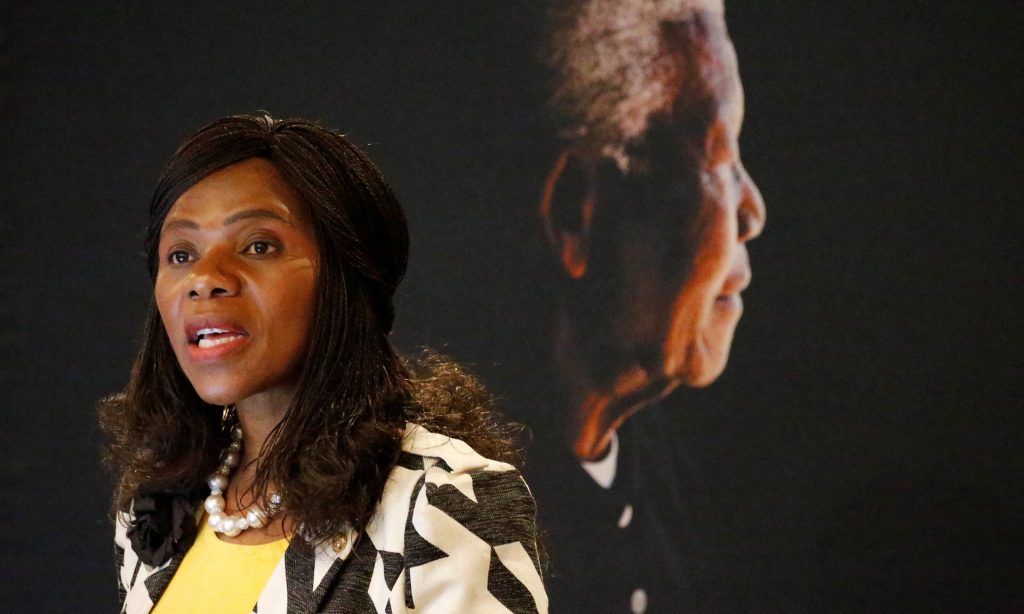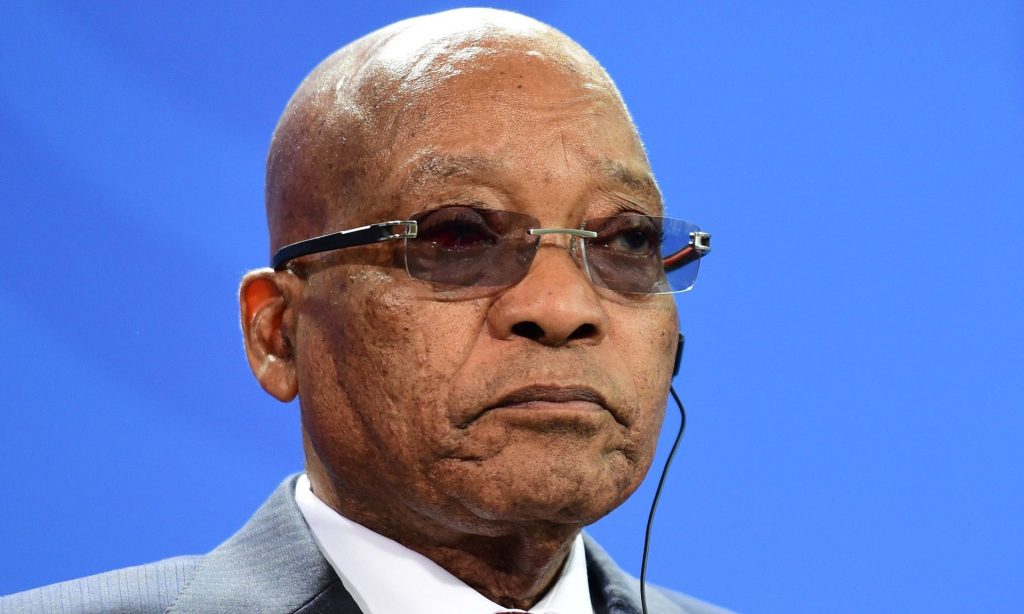
Photograph: Siphiwe Sibeko/Reuters
n a country that loves its reality shows, a very public competition is attracting record audiences. It does not involve a wedding or a singing child; there is no dancing and no mascara. There is, however, a celebrity: Thuli Madonsela.
Appointed as South Africa’s constitutionally mandated public ombudsman – officially known as the public protector – in 2009, Madonsela has become one of the country’s best loved and most admired figures. But her seven-year non-renewable term will expire within weeks, and the South African parliament will choose her replacement next week. The search for candidates has gripped the nation.
Parliamentary hearings have received blanket coverage. Supposed revelations about those hoping to replace Madonsela have made front pages. “Who will protect us?” ran one headline in the Sunday Times newspaper.
Established at the end of the apartheid era by South Africa’s new constitution, the role of public protector carries extensive powers to hold politicians, officials and others to account on behalf of the weak, poor, ignorant or simply angry.
Political analysts in South Africa, where elected and unelected officials are routinely accused of corruption and other abuses, say the appointment is one of the most important decisions that MPs make.
“The stakes are really very high. It is the person who fills the office which is important, not the office itself,” said Gareth Evans, a governance expert at the Institute for Security Studies in Pretoria.
Penelope Andrews, a respected South African legal scholar, described the office of the public protector as “the barometer of the state of South Africa’s constitutional democracy”.
Commentators point out that the office is one of the few that commands public confidence, and it is seen as independent of the ruling African National Congress.
The longlist of candidates included Madonsela’s deputy, two high court judges, a 77-year old-lawyer and amateur bodybuilder, a prosecutor and an activist. The list has now been whittled down to five.
Whoever takes up the post will have a hard act to follow. Facebook fan pages call Madonsela the new Nelson Mandela and there have been widespread calls for her to stand for president. She has received dozens of awards from around the world.
So softly spoken that at press conferences reporters crowd the front-row seats to better hear her, Madonsela has shown extraordinary, some say foolhardy, commitment to her brief to investigate government misconduct.
Her highest-profile investigation was into state expenditure on President Jacob Zuma’s home. Under immense pressure from the ruling African National Congress (ANC) and the government, Madonsela found that public funds had been misused. She read her entire 448-page report aloud in a televised press conference, and her conclusions sparked a constitutional crisis, pitting her office against that of the president. She won.

Photograph: John Macdougall/AFP/Getty Images
There has been abuse – one ANC official accused Madonsela of being a US spy – and even death threats. Madonesela remained unfazed through it all, though she admits now that “the politics” was the most challenging part of her job.
“There were smear campaigns, starting from 2011, but it was not a systemic, structural thing. It was oddballs,” she said in an interview with the Guardian this summer.
One recent inquiry focuses on allegations of improper relations between the president and the Gupta family, who are among South Africa’s wealthiest businessmen. Both Zuma and the Guptas deny any wrongdoing or impropriety.
Such highly sensitive ongoing investigations explain some of the intense interest in the post among South Africa’s political elite – and among a public that, as demonstrated in municipal elections this month, increasingly views the ANC as corrupt and incompetent. The new office holder cannot simply close the inquiry, but can soft-pedal it.
“We have seen it repeatedly over the years. It’s very easy to undermine an investigation,” said Evans.
Many have wondered at the source of Madonsela’s steely determination. She grew up in a small home without water or electricity in the Johannesburg township of Soweto during some of the darkest days of apartheid, sleeping on the floor of the family’s tiny kitchen with six siblings.
She won bursaries to fund her schooling and defied her father to study law at a top university. In 1994 she turned down a scholarship at Harvard to help draft South Africa’s new constitution, which is admired around the world for its liberal principles. She then worked in the justice department, before setting up her own legal firm specialising in human rights, gender and constitutional law.
Madonsela remembers how Zuma told her to “show no fear or favour” when she was appointed, and described to her how previous public protectors had helped him before he became president.
She resigned her longstanding ANC membership to avoid any conflicts of interest, and found a friend who was chair of the electoral commission “guilty of gross maladministration”.
Then came the investigation into spending on the president’s sprawling home in rural KwaZulu-Natal. Zuma initially refused Madonsela’s recommendation that he pay back part of the cash, but later agreed to do so.
Madonsela, 53, who heads a team of more than 400, said the highlights of her term had been the hundreds of cases that never made it into the mainstream media.
“It has been the men or women who have no means to hire a lawyer, who we can enable through our ability … to speak as an equal to those with power and [so] obtain a measure of justice,” she said in the interview.
Typical, she said, was an old man who had not been paid by local government officials and had lost his business and home as a result. “The average office holder works with me and my team with the utmost respect and co-operation. The politics have been dreadful but an aberration not the norm.”
The raised profile of the office will bolster its independence in the future, campaigners say. An obviously partisan political choice would cause a public outcry, and potentially a legal challenge.
“Thuli set a very high bar … so the whole process is being scrutinised very closely,” said David Lewis, of the Johannesburg-based campaign group Corruption Watch.
Madonesela can now look forward to a quieter life. “I will take a sabbatical and I will be writing and studying. Then I’ll go back to my legal practice and being an activist in civil society for constitutionalism, rule of law and social justice,” she said.
“It has been more rewarding than tiring. We receive more than our fair share of criticism and harassment but equally much support and more than our fair share of praise. Above all, we can see the difference we make.”

